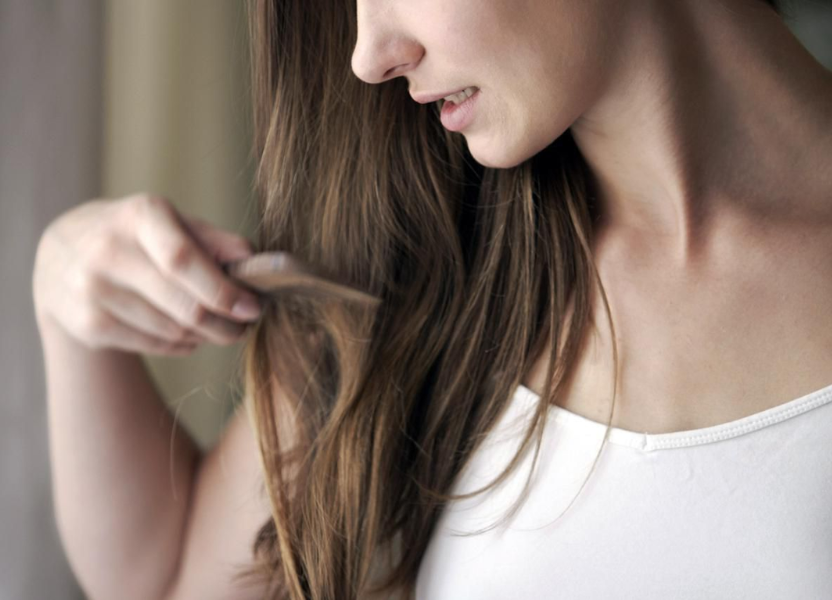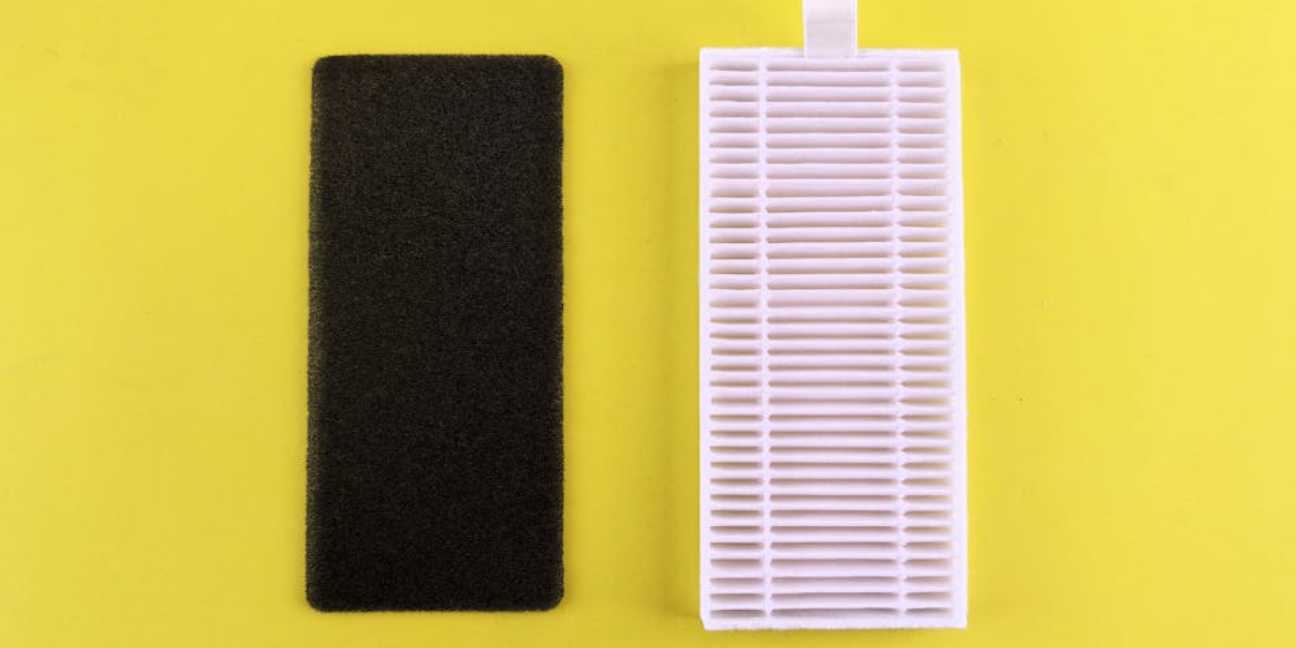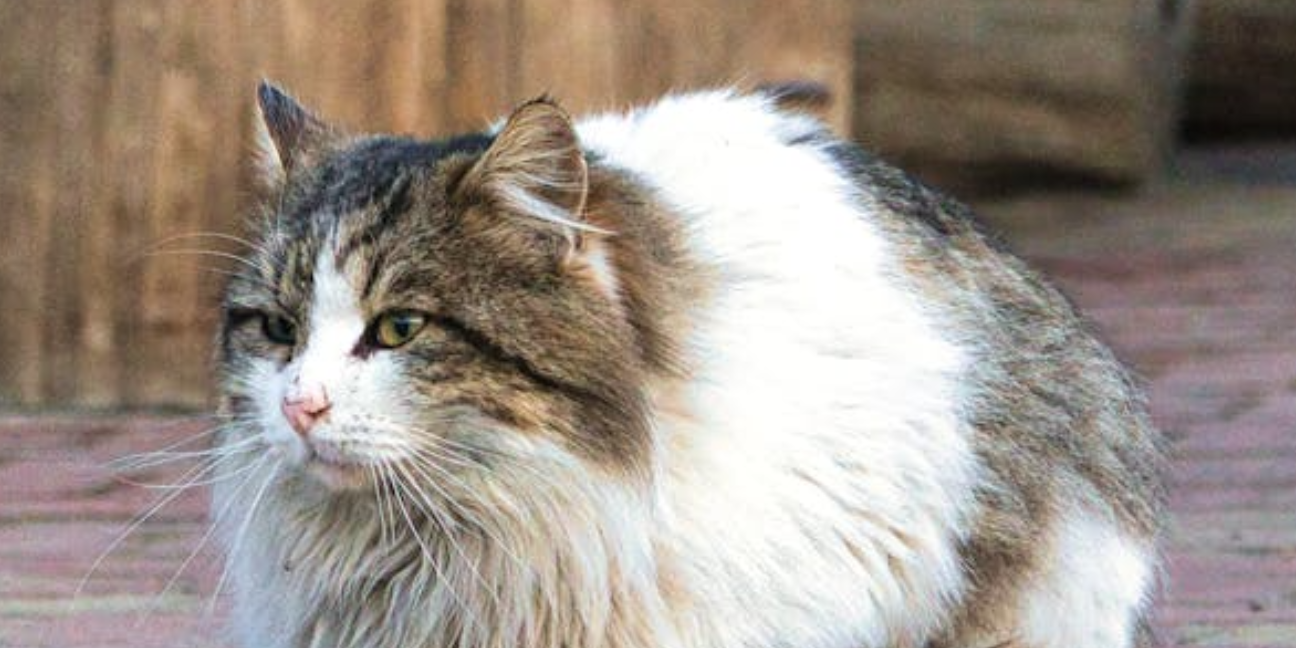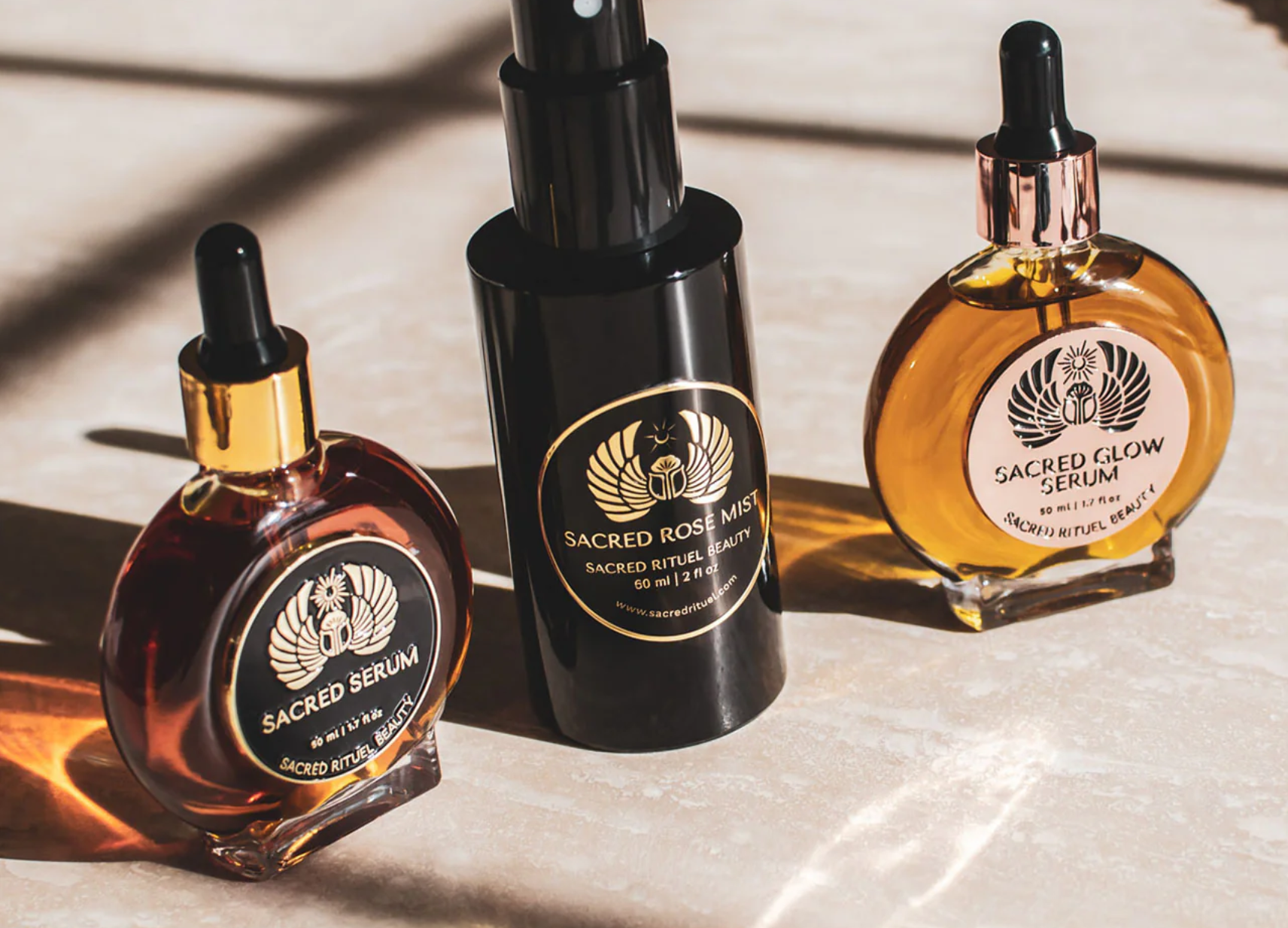Why Your Hair Suddenly Feels Thinner and How to Fix It
Noticing more hair in the shower drain? Here’s what might be causing your hair to thin and how to get your volume back.

One day, your hair feels thick, full, and healthy. The next, you're noticing way more strands in the shower drain, a ponytail that suddenly feels smaller, and hair that just doesn’t have the same volume it used to. If your hair thinning seems like it happened overnight, you’re not imagining it.
Whether it’s stress, hormones, diet changes, or something else entirely, hair doesn’t just lose thickness for no reason. If you’ve been wondering what’s going on with your thinning hair and how to bring back its fullness, it’s time to get some answers.
What’s Causing Your Hair to Thin?
Hair naturally sheds every day, but when more hair is falling out than growing back, that’s when thinning becomes noticeable. The first step to fixing it? Understanding what’s causing the issue.
Stress and Hormonal Changes
If your hair suddenly feels thinner than usual, stress could be the culprit. When your body is under stress, it shifts energy away from non-essential functions, including hair growth. This can lead to temporary thinning or excessive shedding, known as telogen effluvium.
Hormonal imbalances can also wreak havoc on your hair. Postpartum changes, menopause, and conditions like PCOS can all lead to thinning. When hormones fluctuate, the hair growth cycle gets disrupted, resulting in more shedding than normal.
Nutritional Deficiencies
Hair needs the right balance of nutrients and vitamins to stay thick and healthy. A lack of iron, biotin, zinc, or vitamin D can weaken hair strands, causing hair thinning over time. If your diet has changed recently or you’ve been skipping meals, your hair may not be getting the nutrients it needs.
Using the Wrong Hair Products
Not all shampoos and treatments are created equal. Some contain harsh sulfates and drying alcohols that strip the scalp of natural oils, weakening the hair over time. If you’re dealing with thinning hair, choosing the best shampoo for thinning hair is crucial for restoring strength and volume.
Tight Hairstyles and Heat Damage
High ponytails, tight braids, and frequent heat styling can put stress on the hair shaft, leading to breakage and thinning. When hair is constantly pulled or exposed to high heat, it becomes weaker, leading to loss of density over time.
Underlying Health Conditions
If hair thinning seems excessive, it could be a sign of an underlying health issue. Thyroid disorders, autoimmune diseases, and even certain medications can contribute to hair loss. If you’re noticing significant changes in hair texture, thickness, or scalp health, a check-in with a doctor may be necessary.
Now that the most common hair loss causes are covered, let’s talk about how to fix thinning hair and bring back the volume you miss.
The Best Nutrients and Supplements for Stronger Hair
Healthy hair starts from within, and the right nutrients can make a huge difference in thickness, shine, and overall growth.
Biotin for Stronger Strands
Biotin is often called the hair growth vitamin for a reason. It helps strengthen keratin, the protein that makes up hair, making strands less prone to breakage. Many of the best products for thinning hair include biotin as a key ingredient.
Iron for Hair Regrowth
A lack of iron is one of the most overlooked reasons for thinning hair. Since iron helps deliver oxygen to the scalp, low levels can result in weak, brittle hair that falls out more easily. If you suspect low iron levels, adding iron-rich foods like spinach, red meat, and lentils to your diet can help.
Collagen for Thicker Hair
Collagen provides the building blocks for hair strength. Taking collagen supplements or incorporating collagen-rich foods like bone broth and eggs can support hair growth and improve thickness over time.
Zinc for a Healthy Scalp
Zinc plays a crucial role in scalp health and hair follicle function. Without enough zinc, hair can become weaker and more prone to shedding. Foods like pumpkin seeds, nuts, and shellfish are packed with this hair-friendly nutrient.
Omega-3s for Hydration and Shine
Omega-3 fatty acids help reduce inflammation on the scalp and promote stronger, shinier strands. Fatty fish like salmon and mackerel, as well as flaxseeds and walnuts, are excellent sources.
Eating a balanced, nutrient-rich diet is one of the most effective ways to support hair growth naturally. But diet alone isn’t always enough, which is where the right hair products and treatments come in.
The Worst Hair Care Mistakes That Make Your Hair Thinner
Some everyday habits may be contributing to thinning hair without you even realizing it.
Overwashing and Using Harsh Shampoos
Washing your hair too often strips away natural oils that keep strands strong and moisturized. If you’re using a shampoo loaded with sulfates, it could be drying out the scalp, making hair more prone to breakage. Switching to the best shampoo for thinning hair—one that’s sulfate-free and enriched with nourishing ingredients, can help restore strength and volume.
Skipping Scalp Care
A healthy scalp is the foundation of healthy hair growth. If product buildup, excess oil, or irritation are left untreated, it can weaken hair follicles over time. Scalp treatments, gentle exfoliation, and scalp-friendly serums can help create the ideal environment for hair regrowth.
Towel-Drying with Too Much Force
Wet hair is at its weakest, and rubbing it aggressively with a towel can cause unnecessary damage. Instead of rough-drying, using a soft microfiber towel or letting hair air-dry can prevent breakage.
Using Too Much Heat Without Protection
Flat irons, curling wands, and blow dryers can take a toll on hair, especially when used without a heat protectant. Over time, excessive heat exposure can cause dryness, brittleness, and breakage, making hair appear thinner and weaker.
The Ultimate Hair Strengthening Routine
Consistency is key when it comes to reversing thinning hair and preventing further loss.
Use a Shampoo Formulated for Thinning Hair
The best shampoo for thinning hair will contain biotin, caffeine, and keratin, which strengthen strands while stimulating growth. Avoiding harsh detergents and focusing on hydrating, volumizing formulas can make a noticeable difference.
Incorporate Weekly Scalp Massages
Massaging the scalp increases blood flow to the hair follicles, promoting stronger growth. Using nourishing oils like rosemary oil or castor oil can help enhance the benefits even further.
Get Regular Trims to Keep Ends Healthy
Certain haircuts for thin hair can create the illusion of thickness and volume. Adding layers, avoiding excessive thinning shears, and keeping ends clean can prevent hair from looking limp or flat.
Limit Chemical Treatments and Overprocessing
Frequent bleaching, perms, and chemical treatments weaken the hair shaft, making hair prone to breakage. Allowing time between treatments and using bond-repairing treatments can help keep hair resilient and strong.
If your hair thinning feels like it came out of nowhere, there’s a reason behind it. Whether it’s stress, diet, hormonal changes, or product buildup, thinning hair is often a sign that something needs to be adjusted. So, by focusing on scalp health, nutrient-rich foods, the right products, and gentle hair care habits, it’s possible to restore thicker, healthier hair over time.
For more expert-backed hair care tips, product recommendations, and scalp health insights, follow Chuckle Craft.




